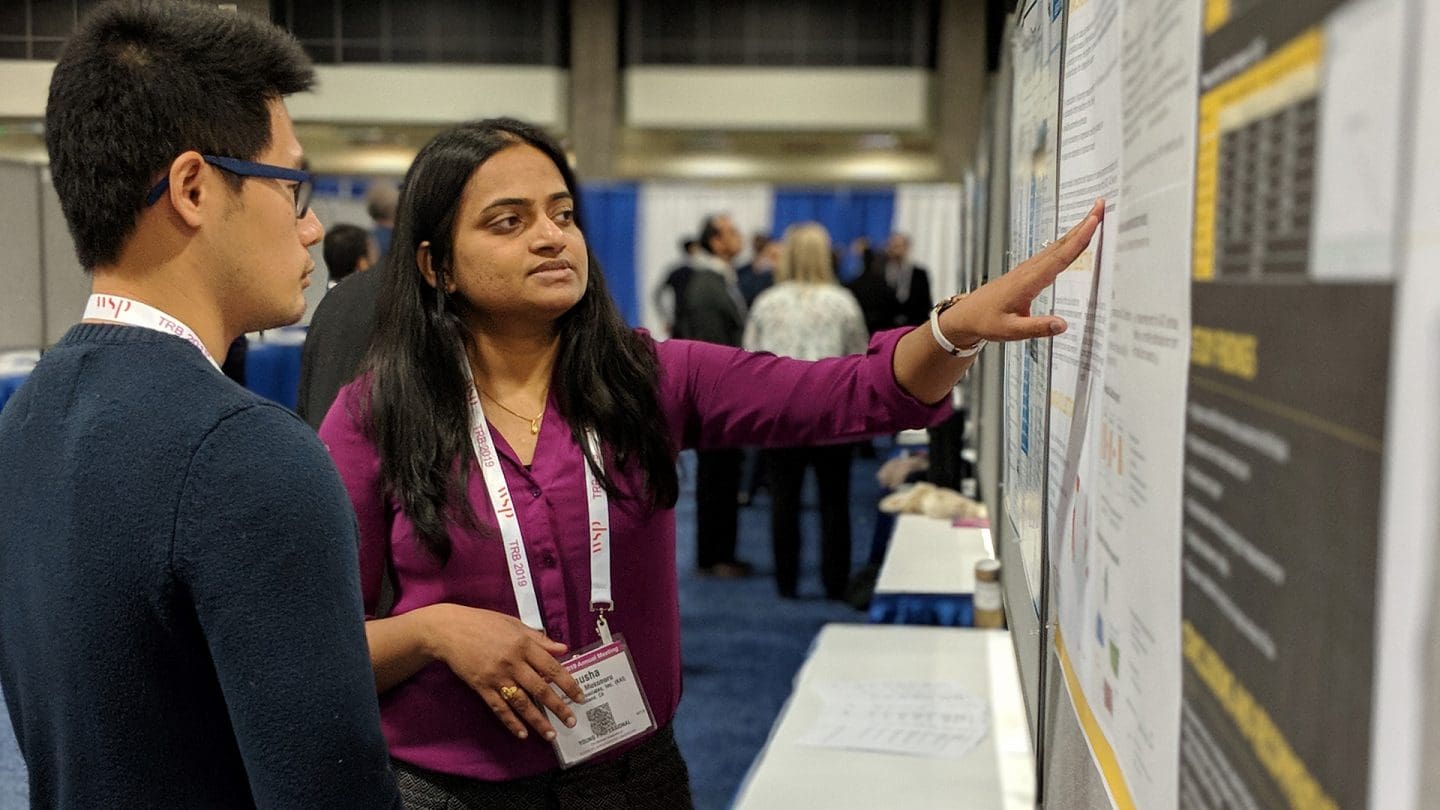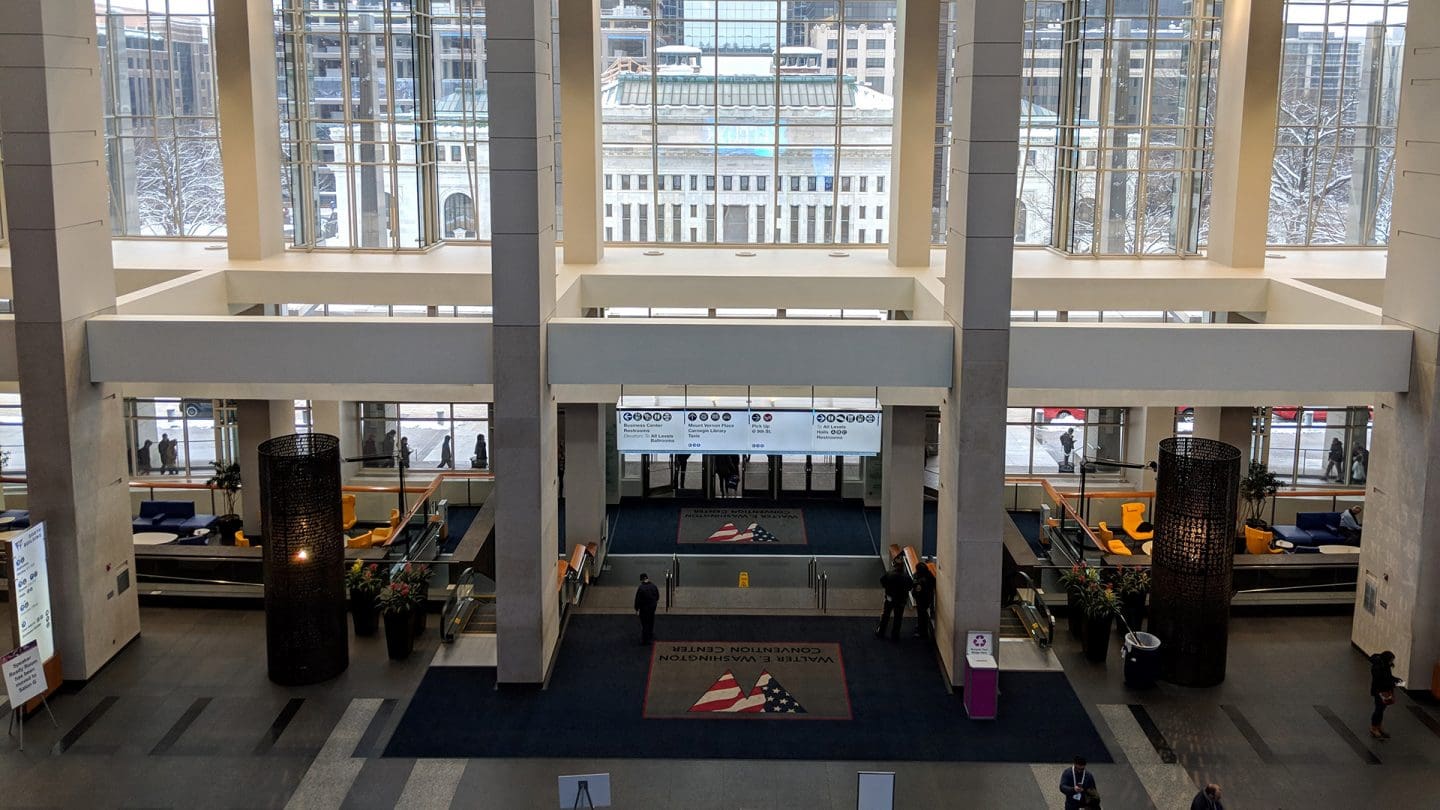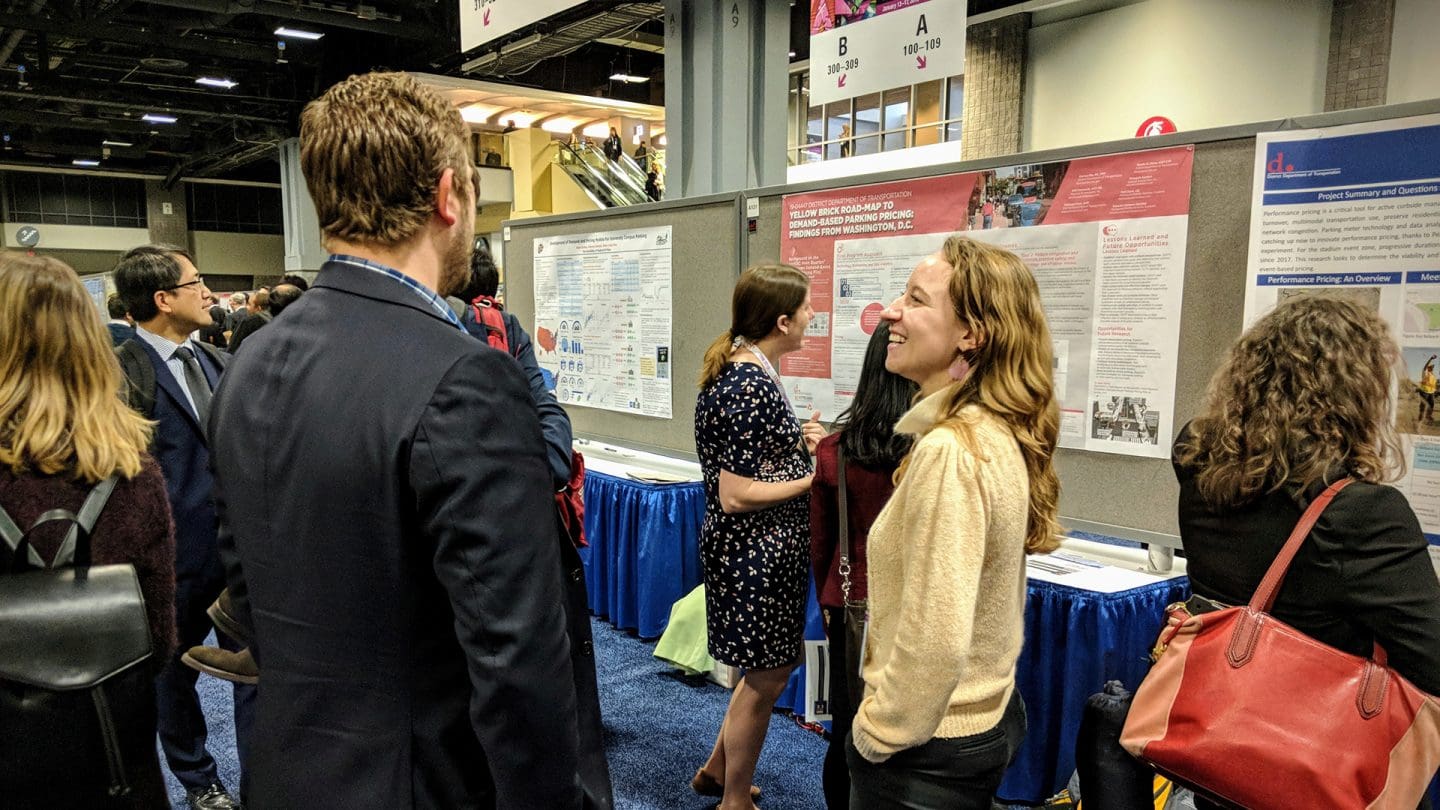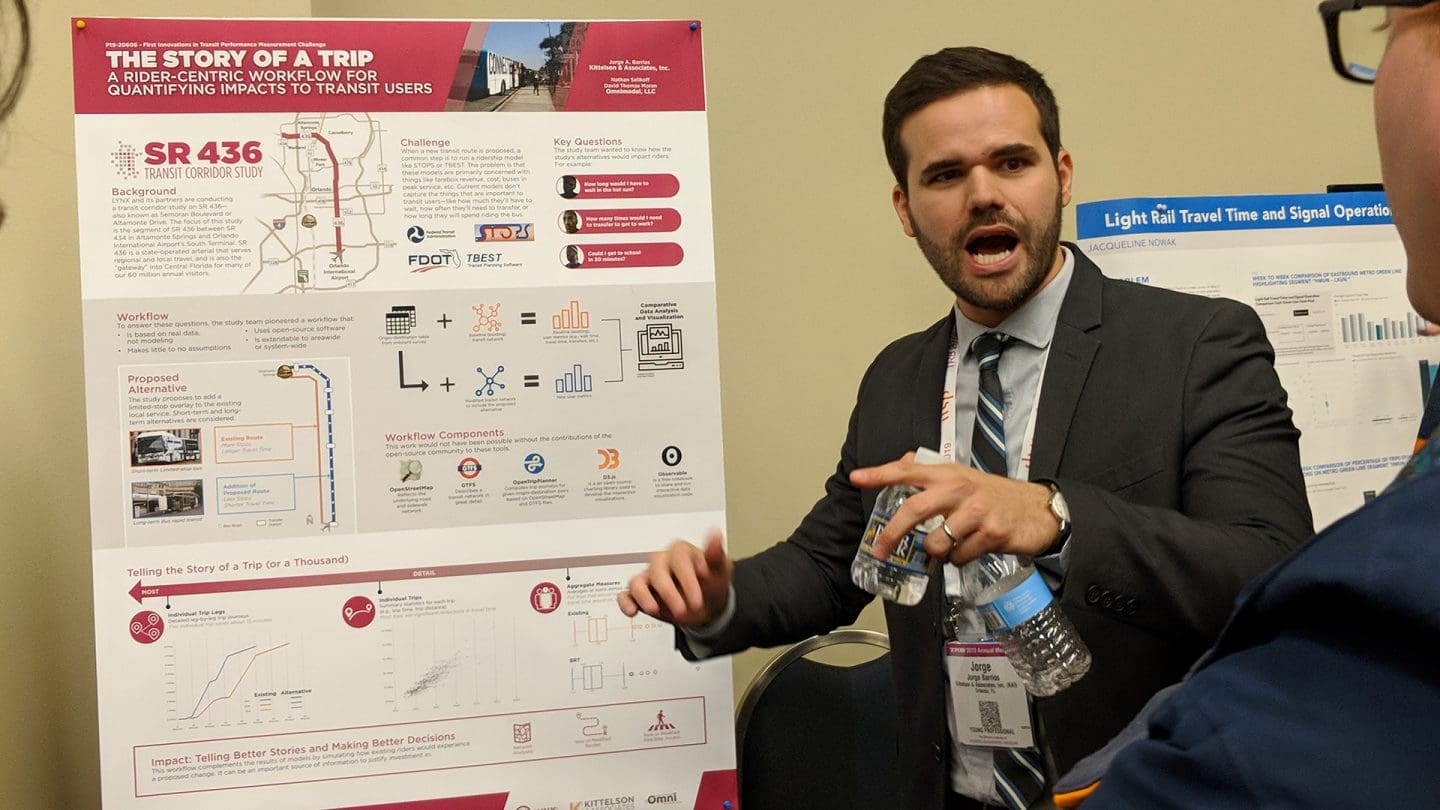January 17, 2019
The 98th Annual Meeting of the Transportation Research Board just wrapped up in Washington, D.C. The brisk (and snowy) air may have had something to do with it, but Kittelson staff walked away rejuvenated by what we heard and ready to continue these conversations throughout the rest of the year.
With 4,000 sessions packed into five days, our heads and notebooks are buzzing with thoughts and themes. A few jumped out at us, however. Whether you attended TRB and just couldn’t see it all (trust us, we get it), or weren’t able to make the conference this year, we hope you find these insights helpful.
For more about Kittelson’s involvement in the TRB Annual Meeting, view the list of presentations here, and feel free to reach out with questions on any of our topics!
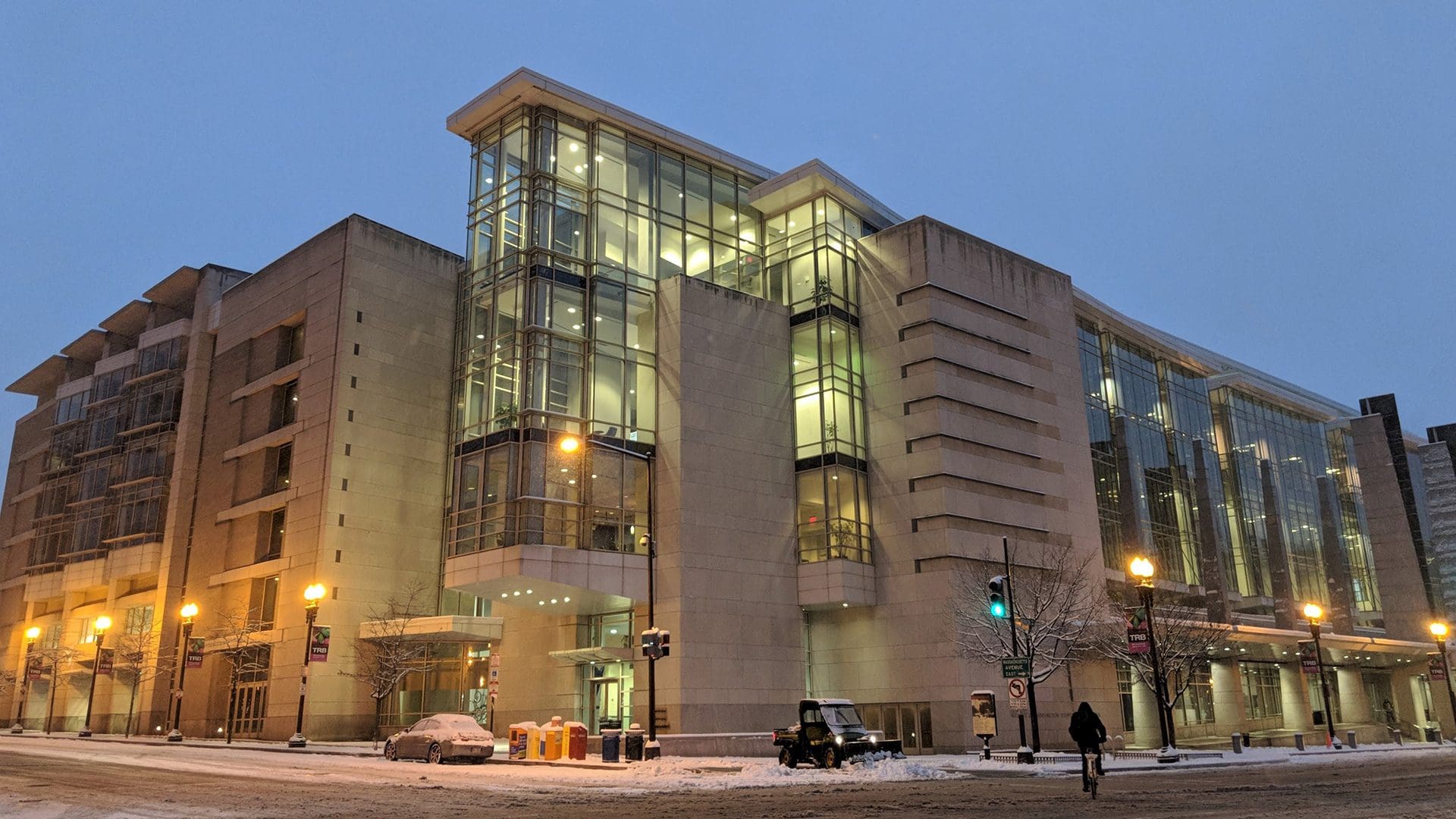
More than 4,000 research sessions took place within the walls of the Walter E. Washington Convention Center from January 13-17, 2019.
Kittelson’s Top Takeaways
1. Sessions on equity, sustainability, and active transportation were heavily attended. Transportation professionals continue to understand that the impacts of investments and decisions extend far beyond traffic delay and capacity. We saw TRB attendees seek out research and best practices on how to make well-informed decisions that are inclusive and sustainable. This was reflected in an emphasis on sessions focusing on non-auto transportation modes.
2. Excitement about transformational technologies was balanced with caution. Emerging research and technological advancements with connected and automated vehicles hold promise, but we need to maintain priorities and meet the biggest needs our communities are seeing today. Most sessions at TRB 2019 seemed to agree that we have slid past the “Peak of Inflated Expectations” in the CAV (connected/automated vehicle) hype cycle. Although many sessions discussed the impacts we expect to see from transformational technologies, the timelines for adoption were much longer than we heard last year. “Defending our Cities from Technology Hype” was the title of a well-attended session. Many local communities are struggling to maintain their existing transportation infrastructure under shrinking budgets and smaller staff resources. They don’t yet have plans for funding the advanced technology needed to support driverless cars.
3. Micro mobility was a major discussion. Standing room only was a common trend in sessions on e-bikes and e-scooters. The consensus is that e-bikes are here to stay. Scooters (or “Big Scoot” as Paul Supawanich dubbed the industry) are finding their way working with cities–moving from disruptors to partners. Moving beyond the policy challenges of the dockless revolution, street design remains at the forefront as we try to create safe spaces for all manner of Little Vehicles.
4. It all ties back to land use. The connection between transportation, land use, and a community’s built environment is an essential foundation of a transportation network, and was revisited often at TRB 2019, especially with the connection to CAVs. As transformational technologies continue to decrease in cost and increase in popularity, we will see impacts not only on our transportation system, but also on the way we use land. These conversations will continue, too. Kittelson is leading a national research effort to develop NCHRP 8-117, the first guidebook of its kind helping transportation decision-makers better understand how transformational technologies can impact travel demand and land use.
5. Data, data, data … now what? We saw trends from previous years continue with plenty of sessions and exhibits on new data sources, collection technologies, highly instrumented vehicles, and web portals. But rather than asking about how we get data, the discussion has shifted to what we do with the data and how we can share lessons learned. Concerns of data processing, data storage, and data interpretation are on the forefront, with increasing discussion about openly sharing data and algorithms, including FHWA’s Cooperative Automation Research Mobility Applications (CARMA) Open Platform to engage with industry on cooperative automation.
If you attended #TRBAM this year, what topics and themes stood out to you? Reply to our Facebook or Twitter post and let’s have a conversation!

